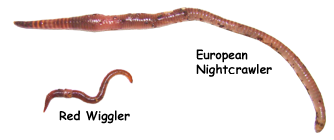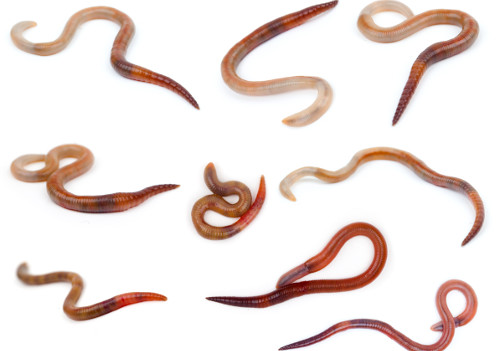Red Wiggler Worms - Enhance Your Soil Wellness Normally
Red Wiggler Worms Demystified: Opening the Secrets of Vermiculture for Greener Living and Nutrient-Rich Soil
In the realm of sustainable methods for enhancing dirt quality and advertising eco-conscious living, red wiggler worms play a critical yet usually neglected duty. These modest creatures have the remarkable capacity to change organic waste into nutrient-rich spreadings that serve as a potent all-natural fertilizer. By diving right into the globe of vermiculture, one can uncover a variety of advantages that extend far beyond traditional composting techniques. Understanding the details of taking care of these worms, enhancing their environment, and using their castings can cause a greener way of living and much healthier soil for plants to thrive.
The Role of Red Wiggler Worms
Red Wiggler worms play a crucial duty in composting systems by efficiently breaking down organic issue into nutrient-rich castings. These voracious eaters take in a variety of natural products, such as kitchen area scraps, lawn waste, and paper items. As they feed, the worms' digestive procedures damage down the raw material right into a penalty, dark, and nutrient-dense material called worm spreadings or vermicompost.
The castings generated by Red Wiggler worms are highly advantageous for dirt wellness and plant development. They are rich in important nutrients like potassium, phosphorus, and nitrogen, which are important for supporting healthy plant growth. In addition, worm spreadings contain valuable microorganisms and enzymes that help boost dirt structure, increase water retention, and improve nutrient uptake by plants.
Advantages of Vermicomposting

Additionally, vermicompost, the nutrient-rich final product of vermicomposting, offers as an outstanding natural plant food and soil conditioner. It boosts dirt framework, boosts soil oygenation, and raises dirt wetness retention. These residential properties contribute to healthier plants with more powerful root systems and far better resistance to illness and pests. Vermicompost likewise improves the dirt with crucial nutrients like phosphorus, potassium, and nitrogen, advertising plant growth and total dirt fertility.
Additionally, vermicomposting assistances lasting horticulture practices by providing a natural and chemical-free option to synthetic fertilizers. Red Wiggler Worms. This ecologically pleasant strategy not just enriches the dirt yet likewise helps minimize dependence on dangerous chemicals, promoting a greener and much more lasting means of gardening
Establishing a Worm Container
When establishing a worm bin for vermicomposting, proper configuration is vital to ensure the success of the composting process. The very first action in establishing up a worm bin is selecting an appropriate container.
After including the bedding, present the red wiggler worms to the container. The worms should after that be supplied with food scraps such as fruit and vegetable peels, coffee premises, and eggshells.
Regularly check the wetness degrees and temperature in the worm container to make sure optimal conditions for the worms. With proper arrangement and upkeep, the worm container will successfully convert natural waste right into nutrient-rich garden compost for your plants and garden.
Collecting Worm Castings
To efficiently gather nutrient-rich worm castings from your vermicomposting system, a systematic harvesting technique is essential. There are a couple of key steps to comply with to ensure a successful procedure when it comes time to collect the worm castings. Stop adding fresh food scraps to one side of the worm container for a pair of weeks before gathering. This urges the worms to migrate to the side with fresh bed linens and food, making it much easier to scoop out the spreadings from the opposite side.

Troubleshooting Common Issues
Identifying and dealing with usual difficulties that might emerge during the vermicomposting procedure is important for keeping a healthy and efficient worm bin. Adding excess food scraps can lead to a buildup of moisture and acidity in the worm container, possibly damaging the worms. An additional concern is undesirable web smells originating from the worm bin.
Furthermore, if the worm populace is declining or the worms appear undesirable, it might be because of environmental stressors such as extreme temperature levels or pH levels. Checking these elements and making required modifications is crucial for the wellness of the worms. By repairing these usual concerns immediately, vermicomposters can make sure a successful and smooth vermicomposting procedure while preserving a view prospering worm population.

Final Thought
To conclude, red wiggler worms play an important duty in vermiculture by damaging down organic matter into nutrient-rich dirt. The advantages of vermiculture include greener living and enhanced dirt top quality. Setting up a worm container is essential for successful vermiculture, and gathering worm spreadings provides useful garden compost for gardening. By comprehending and repairing usual concerns, people can open the keys of vermiculture for lasting living and much healthier dirt.
As they feed, the worms' digestive procedures break down the organic matter into a penalty, dark, and nutrient-dense product recognized as worm spreadings or vermicompost.
The spreadings generated by Red Wiggler worms are highly advantageous for dirt wellness and plant development. Including excess food scraps can lead to a build-up of dampness and level article source of acidity in the worm bin, potentially damaging the worms.In addition, if the worm populace is declining or the worms show up harmful, it might be due to environmental stress factors such as severe temperatures or pH levels. Establishing up a worm bin is necessary for effective vermiculture, and gathering worm castings provides beneficial garden compost for horticulture.